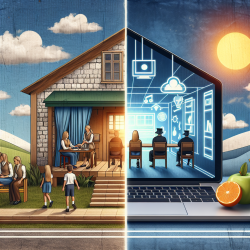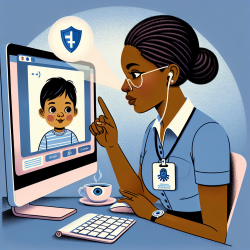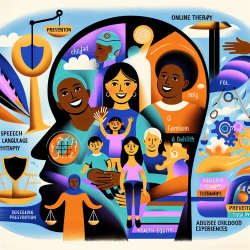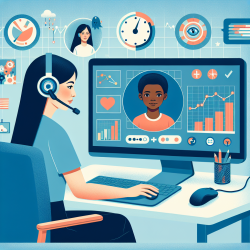In the wake of the COVID-19 pandemic, many sectors had to pivot quickly to continue delivering essential services. The Washington State Supplemental Nutrition Program for Women, Infants, and Children (WA WIC) provides a compelling case study on how remote service delivery and expanded options can enhance program effectiveness. These insights are not only valuable for nutrition programs but also offer lessons for improving school therapy services.
Understanding the WA WIC Program Changes
The WA WIC program adopted federal waivers to transition to remote service delivery and expanded its approved food list by over 600 items without federal waivers. This strategic move was designed to address the challenges participants faced in accessing food during the pandemic. The program aimed to assess the reach and effectiveness of these changes using a mixed-methods design guided by the RE-AIM framework.
Key Outcomes and Their Implications for School Therapy
- Increased Participation: WA WIC saw a 2% increase in participation from March to December 2020. This suggests that removing barriers to access can lead to greater engagement. For school therapy services, offering flexible scheduling and remote sessions could similarly increase student participation.
- Improved Completion Rates: The completion rates for certification and nutrition education increased by 5% and 18%, respectively. This highlights the effectiveness of remote services in facilitating higher completion rates. Schools can leverage this by offering online counseling sessions that students can attend from home or other convenient locations.
- Satisfaction with Remote Services: Both staff and participants reported high satisfaction with remote service delivery. For schools facing therapist staffing shortages, implementing remote therapy options could help bridge gaps in service delivery while maintaining high satisfaction levels among students and parents.
- Expanded Options: The expansion of the food list led to increased food benefit redemption. Similarly, expanding the types of therapy services offered (e.g., group sessions, workshops) could address diverse student needs more effectively.
Implementing Remote Services in Schools
The success of WA WIC's remote services offers a blueprint for schools looking to implement or improve their own remote therapy services. Here are some steps schools can take:
- Leverage Technology: Utilize video conferencing tools and secure platforms for online therapy sessions to ensure privacy and ease of access.
- Train Staff: Provide training for therapists on best practices for delivering effective online therapy sessions.
- Create a Hybrid Model: Offer a mix of in-person and remote sessions to accommodate different student needs and preferences.
- Expand Service Offerings: Consider adding new types of therapy sessions or workshops that can be delivered remotely, such as mindfulness classes or peer support groups.
The Future of School Therapy Services
The lessons learned from WA WIC's response to the COVID-19 pandemic underscore the potential benefits of adopting flexible service delivery models in schools. By embracing technology and expanding service offerings, schools can improve access to therapy services, enhance student satisfaction, and ultimately support better educational outcomes.
If you're interested in exploring these insights further, consider reading the original research paper titled Insights from Washington State’s COVID-19 Response: A Mixed-Methods Evaluation of WIC Remote Services and Expanded Food Options Using the RE-AIM Framework.










